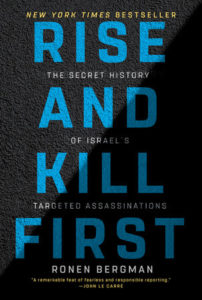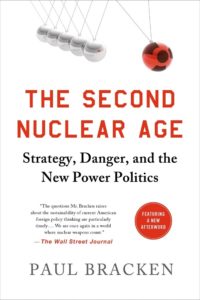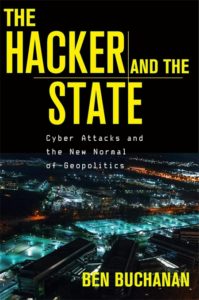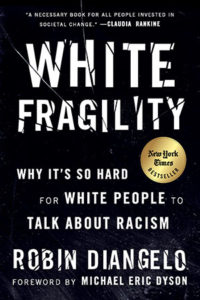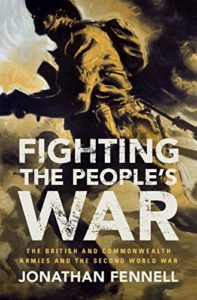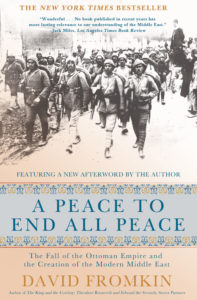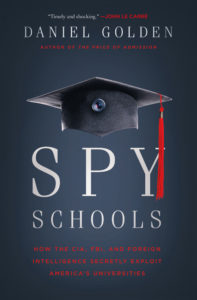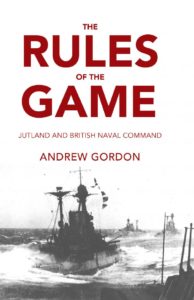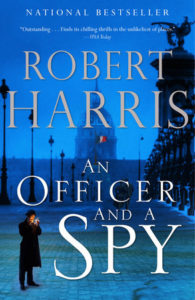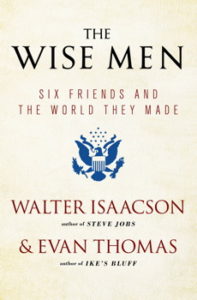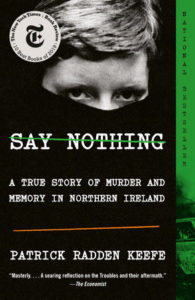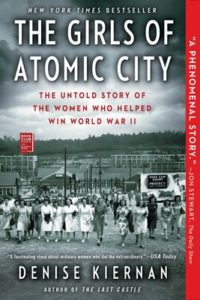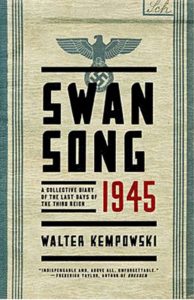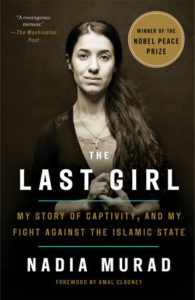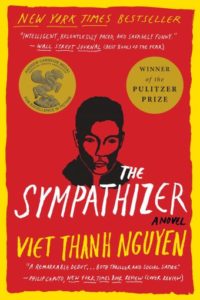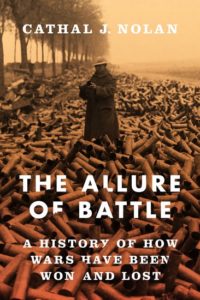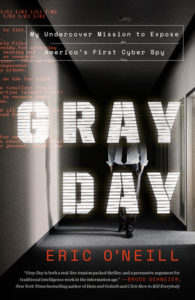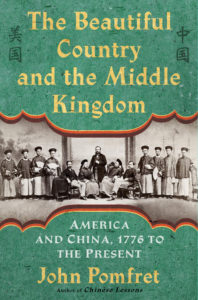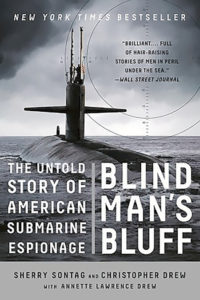
Title: SSP Recommended Reading, Summer 2020
For the past several years, we’ve asked SSP faculty what books they would recommend to students who want to keep their brains active over the summer. (Check out last year’s recommendations here!) This year, we changed things up a bit and asked our students and alumni the same question. Here are the books they’d suggest for anyone who wants a NatSec-related bit of beach reading.
Books are listed alphabetically by author’s last name.
Rise and Kill First: The Secret History of Israel’s Targeted Assassinations
By Ronen Bergman
About: Terrorism, Intelligence, Regional Issues, History, Contemporary Issues
“The secret and often twisted history of Israel’s Mossad and its campaign of targeted killings.” — Cooper Vardy, SSP ‘22
“Blending history and investigative reporting, Bergman never loses sight of the ethical questions that arise when a state, founded as a refuge for a stateless people who were targets of a genocide, decides it needs to kill in order to survive. … This book is full of shocking moments, surprising disturbances in a narrative full of fateful twists and unintended consequences.” — Jennifer Szalai, The New York Times
The Second Nuclear Age: Strategy, Danger, and the New Power Politics
By Paul Bracken
About: US National Security, International Relations, Military Operations, Nuclear Issues, History, Contemporary Issues, Politics
“The best book I’ve ever read on the future of nuclear weapons.” — Chris Quillen, SSP ‘02
“Mr. Bracken’s view is a powerful one. … The questions [he] raises about the sustainability of current American foreign policy thinking are particularly timely. Nuclear strategy must come out of its post-Cold War retirement. We are once again in a world where nuclear weapons count.” — Walter Russell Mead, The Wall Street Journal
The Hacker and the State
By Ben Buchanan
About: Intelligence, US National Security, International Relations, Technology, Contemporary Issues
“A really accessible book for anyone interested in how computer hacking and cybersecurity change international relations. No technical background required and filled with cool stories.” — Anonymous, SSP ‘13
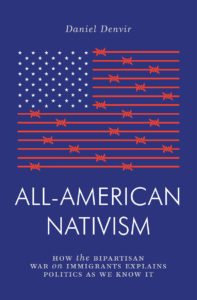
All-American Nativism: How the Bipartisan War on Immigrants Explains Politics as We Know It
By Daniel Denvir
About: US National Security, International Relations, Regional Issues, History, Contemporary Issues, Politics
“A fantastic perspective on American immigration politics and the history that has led to its inadequacies.” — Sam Schiffer, SSP ‘21
White Fragility: Why It’s So Hard for White People to Talk About Racism
By Robin DiAngelo
About: Contemporary Issues, Politics
“This book is an extremely brief (150 pages) and potent entry point for readers into the conversation around structural racism in the US and all of our institutions — including every level of our national security apparatus and communities.” — Anonymous, SSP ’18
Theories of International Politics and Zombies
By Daniel Drezner
About: International Relations
“It is a short, fun, and engaging read on “applied” IR theory. I wish I read this book before or during SEST-500 [Theory & Practice of Security].” — Max, SSP ‘19
“Fantastic reminder (or primer, depending how far along you are) on IR theory, with a whimsical and genuinely well explored twist. Quite the relevant perspective in 2020.” — Antoine Barthe, SSP ’12
Fighting the People’s War: The British and Commonwealth Armies in the Second World War
By Jonathan Fennell
About: Military Operations, History
“The book is a very interesting look at the people who comprised the armies of the British Commonwealth (ANZACs, Canadians, Indians, South Africans) and is more of a social history than many other volumes on the Second World War.” — Sam Seitz, SSP ‘20
Case Red: The Collapse of France
By Robert Forczyk
About: International Relations, Military Operations, History, Politics
“From a military history perspective, this book is interesting in that it covers military operations during the latter half of the Battle of France, a period relatively unstudied in English language works. It also approaches the debacle of 1940 not as a sudden bang but rather a slow burn, providing critical insights into how France mishandled a series of political, domestic, and diplomatic challenges that snowballed into the end of the Third Republic. Finally, it leaves us with an important question pertaining to civil-military relations: At what point does insubordination turn into outright treason?” — Diego Velazquez Saloux, SSP ‘22
A Peace to End All Peace: The Fall of the Ottoman Empire and the Creation of the Modern Middle East
By David Fromkin
About: International Relations, Military Operations, Regional Issues, History, Politics
Recommended by Max, SSP ‘19. “Ambitious and splendid…An epic tale of ruin and disillusion…of great men, their large deeds and even larger follies.” ―Fouad Ajami, The Wall Street Journal
The Price of Prestige: Conspicuous Consumption in International Relations
By Lilach Gilady
About: International Relations
“The book presents an interesting explanation of state behavior that emphasizes the role of prestige as opposed to welfare maximization.” ― Samuel Seitz, SSP ’20
Spy Schools: How the CIA, FBI, and Foreign Intelligence Secretly Exploit America’s Universities
By Daniel Golden
About: Intelligence, Contemporary Issues
Recommended by an SSP ‘21 student. “It’s real-life ‘Spy vs. Spy’… In this important book, Golden writes that universities not only ignore what is happening on their campuses but also sometimes condone it in ways that raise serious questions about America’s national security…[a] fascinating book.” — Valerie Strauss, The Washington Post
The Rules of the Game: Jutland and British Naval Command
By Andrew Gordon
About: Military Operations, History, Military culture
“The length is intimidating, but this is a great example of what can be achieved through qualitative analysis of an organization as Gordon tracks the evolution of the Royal Navy’s expectations for command and control from Nelson’s use of mission orders at Trafalgar to the strict adherence to doctrine expected of the Grand Fleet at Jutland.” — Bill Rogers, SSP ‘04
An Officer and a Spy
By Robert Harris
About: Intelligence, History
“This is a fun and in-depth novelization of the Dreyfus Affair that explores the civil-military relations in pre-WWI France.” — Anonymous SSPer
The Wise Men: Six Friends and the World They Made
By Walter Isaacson & Evan Thomas
About: US National Security, International Relations, History
“A brilliant and inspiring history of six foreign policy makers who helped win the Second World War and set the contours of the Cold War. It shows how individuals can shape history and what bipartisan (or non-partisan) foreign policy can accomplish for the United States.” — Ryan Doherty, SSP ’14
Thwarting Enemies at Home and Abroad: How to Be a Counterintelligence Officer
By William R. Johnson
About: Intelligence
Recommended by an SSP ‘21 student. “Only a respected CI pro like [Johnson] could have described so clearly our arcane business of dangles, doubles, defectors, and deception. Thwarting Enemies at Home and Abroad will not only be a fascinating read for the general public but will also serve as a text for a whole new generation of CI trainees.” — James M. Olson, former chief of CIA counterintelligence
Say Nothing: A True Story of Murder and Memory in Northern Ireland
By Patrick Radden Keefe
About: Terrorism, Regional Issues, History, Contemporary Issues
“This book was recommended to me by a family member who is a teacher when I mentioned I was writing on the Provisional IRA for my SEST-546 [Terrorism & Counterterrorism] final. It’s an engrossing history of the Northern Irish terrorists, some of the British COIN/CT measures, and the lesser known Boston Tapes. An easy read but incredibly enlightening.” — Mariah Sutton, SSP ‘21
The Girls of Atomic City: The Untold Story of the Women Who Helped Win World War II
By Denise Kiernan
About: Nuclear Issues, History, Technology
“A fascinating book about the Manhattan Project, a hidden town in Tennessee, and the women who helped make atomic history, generally without knowing what they were working on. Great for anyone who is interested in nuclear history and hidden stories about America. Kiernan writes this book so well that it could easily be mistaken for a piece of fiction rather than the painstakingly researched history it is.” — Anonymous SSPer
Swansong 1945: A Collective Diary of the Last Days of the Third Reich
By Walter Kempowski
About: Regional Issues, History
“A compelling and rich account of the end of World War II in Europe, told through a collage of personal testimonies and documents.” — Adam Kline, SSP ‘22
The Last Girl: My Story of Captivity and My Fight Against the Islamic State
By Nadia Murad
About: Terrorism, Regional Issues, Contemporary Issues, Human Rights
Recommended by Rebecca Malone, SSP ‘19. “Nadia Murad’s courageous account is horrific and essential reading. . . . Anyone who wants to understand the so-called Islamic State should read The Last Girl.” — The Economist
The Sympathizer
By Viet Thanh Nguyen
About: Intelligence, History
“A great work of historical fiction that tells the story of a North Vietnamese spy who escapes to the United States at the end of the Vietnam War.” — Joel Ramirez, SSP ‘13
The Allure of Battle: A History of How Wars Have Been Won and Lost
By Cathal J. Nolan
About: US National Security, International Relations, Military Operations, History, Politics
Recommended by Anonymous (SSP ’20). “One of the most stimulating and controversial books on military history in a long time. Challenging, well written, well-sourced… there is a great deal of food for thought for military historians and professionals in this volume.” — Jerry Lenaburg, New York Journal of Books
Gray Day: My Undercover Mission to Expose America’s First Cyber Spy
By Eric O’Neill
About: Intelligence, Technology
“Tells of the capture in 2001 of Robert Hanssen, arguably the most damaging spy in US history.” — SSP ‘21 student
“A taut and compelling real life thriller . . . part memoir, part true crime, this fast-paced work is recommended for anyone interested in cybersecurity, Cold War history, and espionage tales.” — Jacob Sherman, Library Journal
The Beautiful Country and the Middle Kingdom
By John Pomfret
About: International Relations, History, Regional Issues
“This enlightening book details the history of relations between the people and governments of both the United States and China from 1776 to present day. Through thorough research of diplomatic history and the skillful inclusion of fascinating individual anecdotes, Pomfret details the tumultuous story of these two nations and their peoples, correctly highlighting the promise, naïveté, misunderstandings, and tragic disappointments that have come to define the relationship. It is hard not to see the cyclical nature of the relationship the author describes when reading contemporary headlines or the mea culpas of the modern China Hands; Pomfret’s book does a service to readers by showing us how we got to where we are today. This book places the complexities, hopes, and disappointments of the American-Sino relationship into refreshing context and should be required reading for anyone who wants to understand how we got to trade wars and mutual suspicion, as well as where the relationship between the two powers that will shape the 21st Century may be heading.” — Steven Hall, SSP’17
The Education of an Idealist
By Samantha Power
About: US National Security, International Relations, Regional Issues, History, Contemporary Issues, Politics
Recommended by an anonymous SSPer. “Power writes with heart about her upbringing — in Ireland, Pittsburgh and Atlanta — and she is especially poignant when recounting a few traumatic episodes… Still, the book is suffused with humor, and [President Obama] furnishes the funniest anecdotes that don’t come from her charming children… The Education of an Idealist is a moving account of how to serve righteously, or at least how to try.” — Adam B. Kushner, The Washington Post
The SADF in the Border War: 1966-1989
By Leopold Scholtz
About: International Relations, Military Operations, History, Regional Issues
“Scholtz’s work is an exploration of the South African Border War and the Angolan Civil War, two of the most under-explored conflicts of the Cold War. He makes the interesting case that these conflicts encompassed three overlapping dimensions: a decades-long counterinsurgency, a conventional war between mobile mechanized forces, and a broader international geopolitical struggle between the United States and the Soviet Union. He describes the geopolitical forces at play and also vividly describes the doctrines, operations, and tactics of the South African Defense Forces during this period and the ways in which they evolved and adapted in response to changing conflict conditions on the battlefield.” — Josh Chang, SSP ‘21
Blind Man’s Bluff: The Untold Story of American Submarine Espionage
By Sherry Sontag and Christopher Drew
About: Intelligence, International Relations, Military Operations, Technology, History
“The book tells the story of how the US applied a new technology, submarines, to the game of geopolitics, especially applied to intelligence. Students can look at these 20th-century stories and extrapolate to other technologies today.” — Jack Lucas, SSP ‘19
